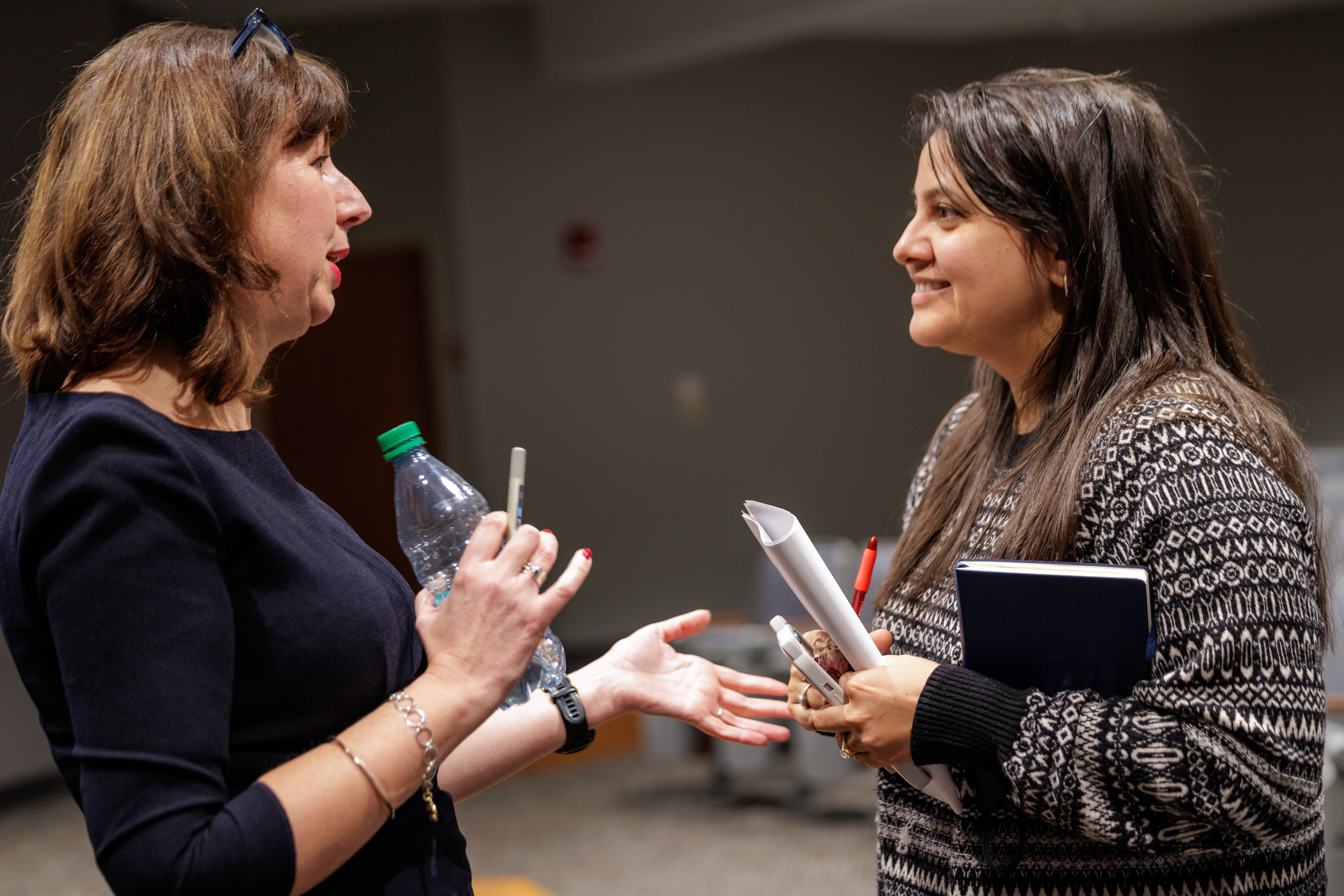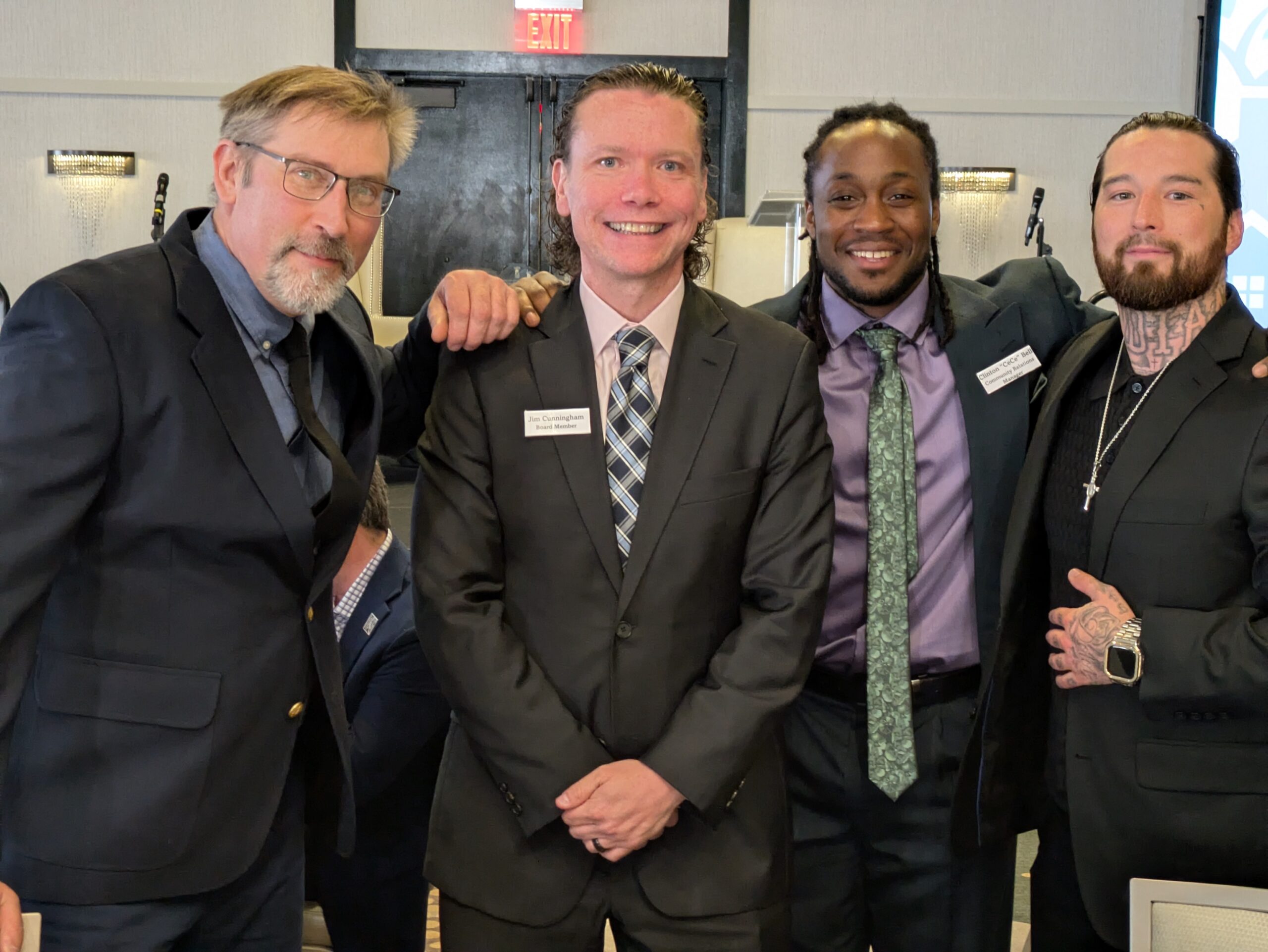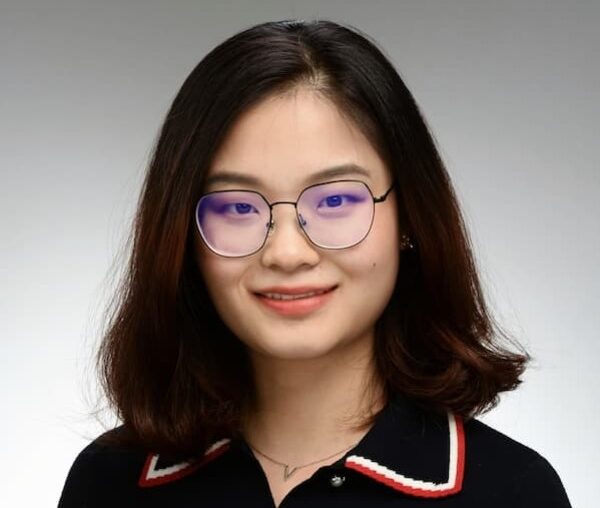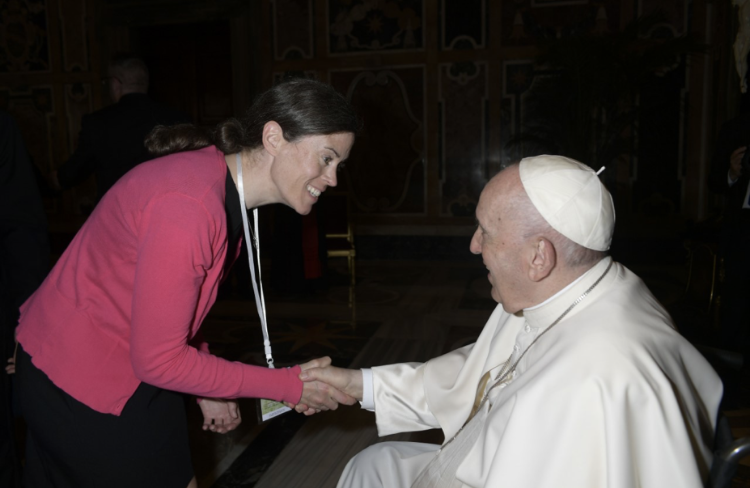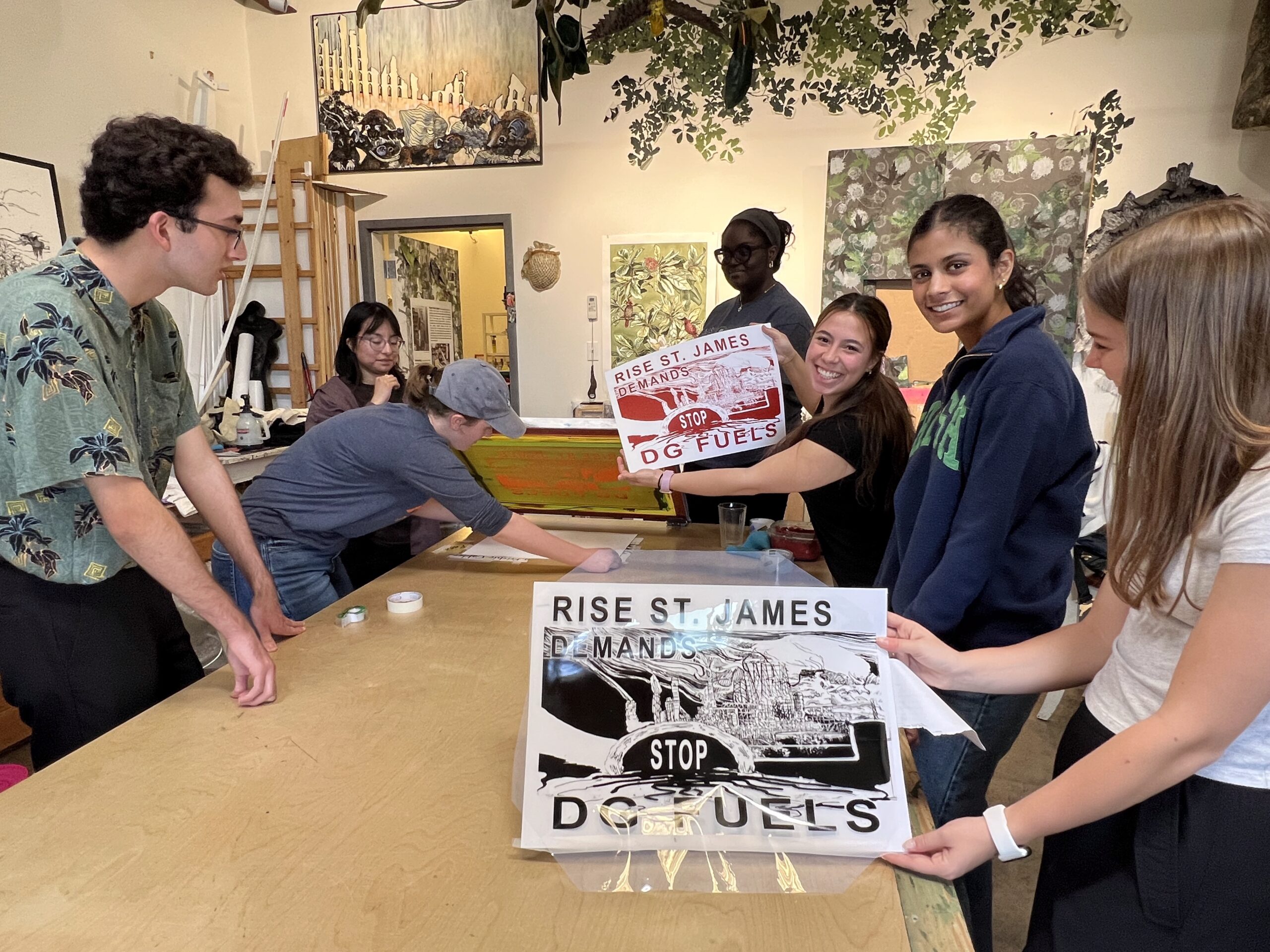Human rights lawyer Monalisa targets child sex trafficking as practitioner in residence
November 26, 2024
As an international human rights lawyer, Monalisa has dealt with some of the worst things that people can do to each other. She’s represented victims and prosecuted criminals in cases of war crimes, terrorism, gender-based violence, child sex abuse, and human trafficking in five countries.
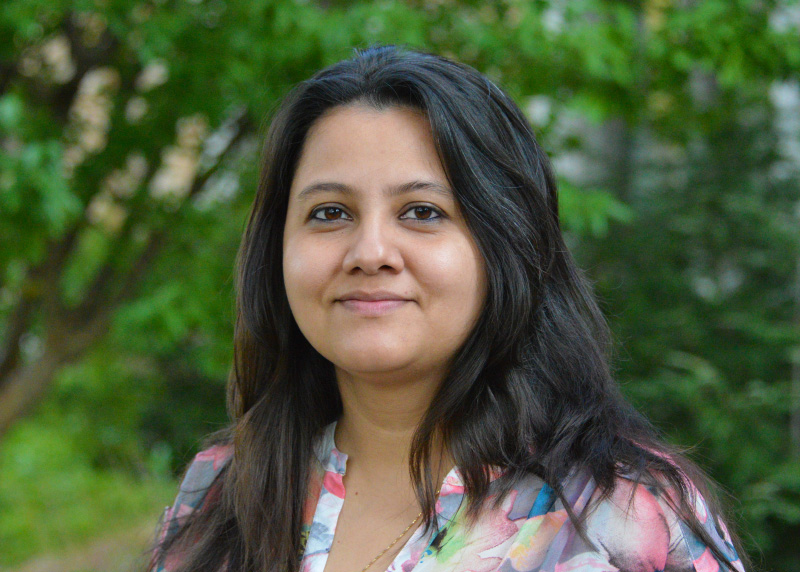
It’s heavy work that could challenge anyone’s faith in humanity, but Monalisa finds that she’s continually inspired by her clients — the victims, the survivors.
“I have seen what change looks like and what change feels like, and that is because of my proximity with victims,” she said. “My hope, my joy, my enthusiasm comes from seeing what this work can do and how it can help people.”
Monalisa, a graduate of Notre Dame’s LL.M. Program in International Human Rights Law, returned to campus this fall to spend the 2024-25 academic year as a practitioner in residence with the Institute for Social Concerns and the Notre Dame Initiative on Race and Resilience. The practitioner in residence is a position that the institute and the initiative will co-host annually to focus on a project of mutual interest to both units.
Monalisa’s research this year is focused on preventing child sex trafficking and specifically how companies in the hospitality sector can ensure they aren’t complicit in those crimes.
She’s tapping into the Institute for Social Concerns’ expertise in the areas of labor, migration, and technology.
“The Institute for Social Concerns is an oasis in so many ways,” she said. “This is where I’ve heard the most intellectually sound and practical ideas about making the world a better place — be it the work the institute is doing with people who are in prison, people experiencing homelessness, or partnerships with the community. It’s such a wonderful, vibrant space.”
The Initiative on Race and Resilience also contributes vitally important perspectives to the project. “The expertise of folks at the initiative — understanding the vulnerability of children, but also understanding that through the lens of race — will be essential,” she said.
She’s part of a working group of Notre Dame faculty who are coming together to consider questions of trafficking from different perspectives — business, engineering, the social sciences, and the humanities. “This is a way to bring together an interdisciplinary group,” she said, “because the problem requires an interdisciplinary answer.”
This spring she’ll teach a course, Human Rights Advocacy: The Blueprint, in which students will study creative approaches to achieving justice for victims and participate in a culminating project of making recommendations to social media companies to keep children safe online.
She’s also supervising two student research groups — one in the College of Engineering that’s analyzing trafficking-related data, and one from the Institute for Social Concerns’ Just Wage Research Lab looking at trafficking and workplace safety — as well as visiting classes across the University and making herself available for meetings with students who are interested in careers in human rights.
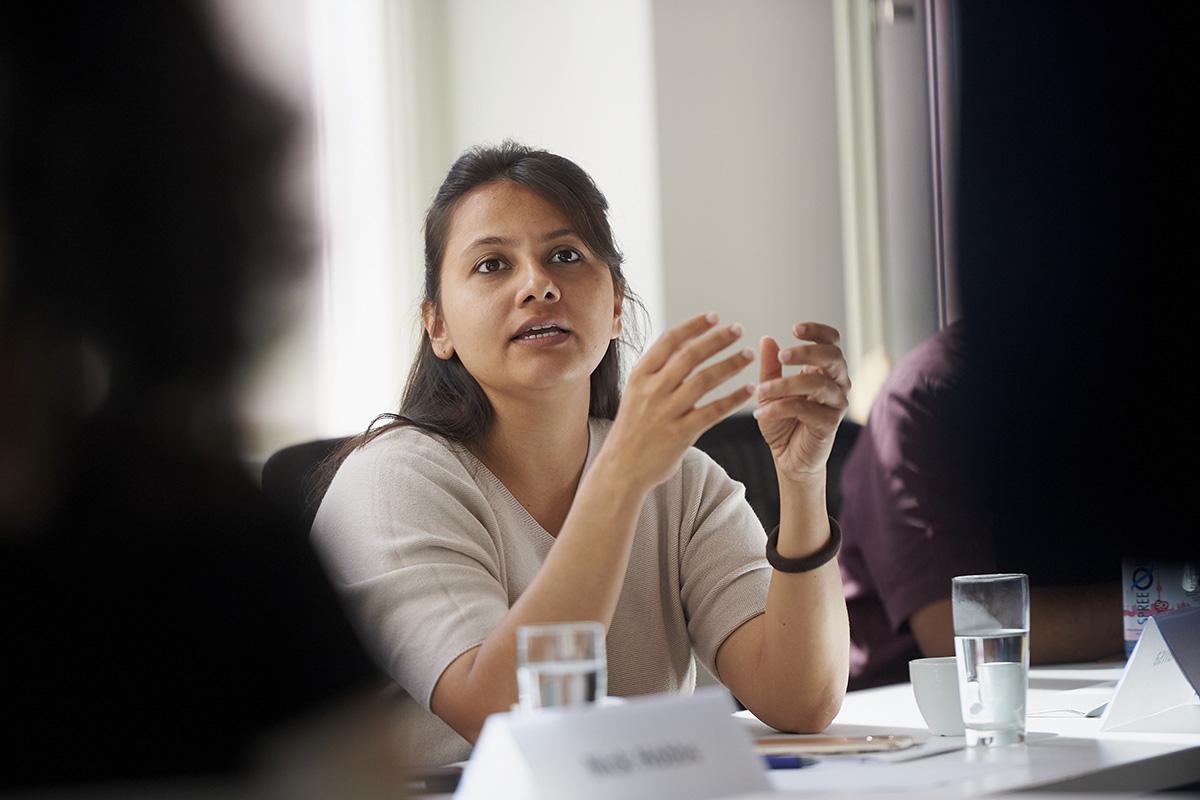
Monalisa grew up in one of the less-developed parts of India, an area that was rife with crime and corruption. Coming from that environment, she had a hard time believing that the law was something people could take seriously.
“Ironically, I found myself in law school,” she said.
And in law school, she saw how powerful the law can be.
As a student at National Law University in Delhi, she worked on a human rights project for migrant workers. Through that project, she witnessed the workers’ lives change profoundly — they were safer at their jobs, and they had better access to food, shelter, and other basics.
“That was my eureka moment to see that the law works, and how I can use the law to bring change and be a force for good,” she said.
After law school, Monalisa worked with NGOs on cases of gender violence and labor issues. However, seeing the global significance of issues like the treatment of workers in multinational supply chains made her want to work on problems at a more macro level.
That desire to work on issues in a bigger way led her to Notre Dame Law School to pursue her LL.M. in International Human Rights Law.
Notre Dame opened more doors and created new pathways for her.
After finishing her LL.M. in 2018, she went to Cambodia to join the prosecution team on the Khmer Rouge Tribunal. Then she went to The Hague, where she worked with the Special Tribunal for Lebanon. From there, she moved to Berlin to work with an NGO on a case in which Indian farmers had been poisoned from using a Swiss-made pesticide.
In 2021, she returned to India with a focus on preventing and prosecuting child sex trafficking.
The issue of child sex trafficking is global and poses many challenges, from weak investigations that contribute to low conviction rates to the need to equip the judicial and child-care systems to prevent abuse of children. The role of technology, including artificial intelligence, in accelerating violence against children is another factor she’s studying.
Monalisa said the core question of the work she’s doing this year is: How do we get corporate actors everywhere to make the world a safer place for children? “I’m very hopeful that they want to do the right thing,” she said.
And she’s confident that there will be more victories in this area. She’s seen them before in the stories of survivors.
“Because I have worked closely with survivors, they have shared what their aspirations are and that they want to become a police officer so girls like them are not trafficked, so their sisters and their friends are safe. They want to be counselors because somebody made them whole again. They want to be lawyers because they want to stand in court and give the most authentic representation, the most powerful, qualified, competent representation a victim can get,” Monalisa said. “All of that is success to me.”
Read about all of the new faculty and scholars who joined the Institute for Social Concerns this fall.
Related Stories
-
Toward a culture of encounter—Lecture series engages Pope Francis, Catholic social tradition
-
“Windows of hope”—NDPEP’s reentry work pursues holistic thriving for returning citizens
-
ReSearching for the Common Good: Yunyan Zhao
-
Remembering Pope Francis—Institute faculty reflect on the pope’s influence on their work
-
Pursuing justice by getting proximate—Students explore themes of proximity, natality, and rootedness in spring break seminars

